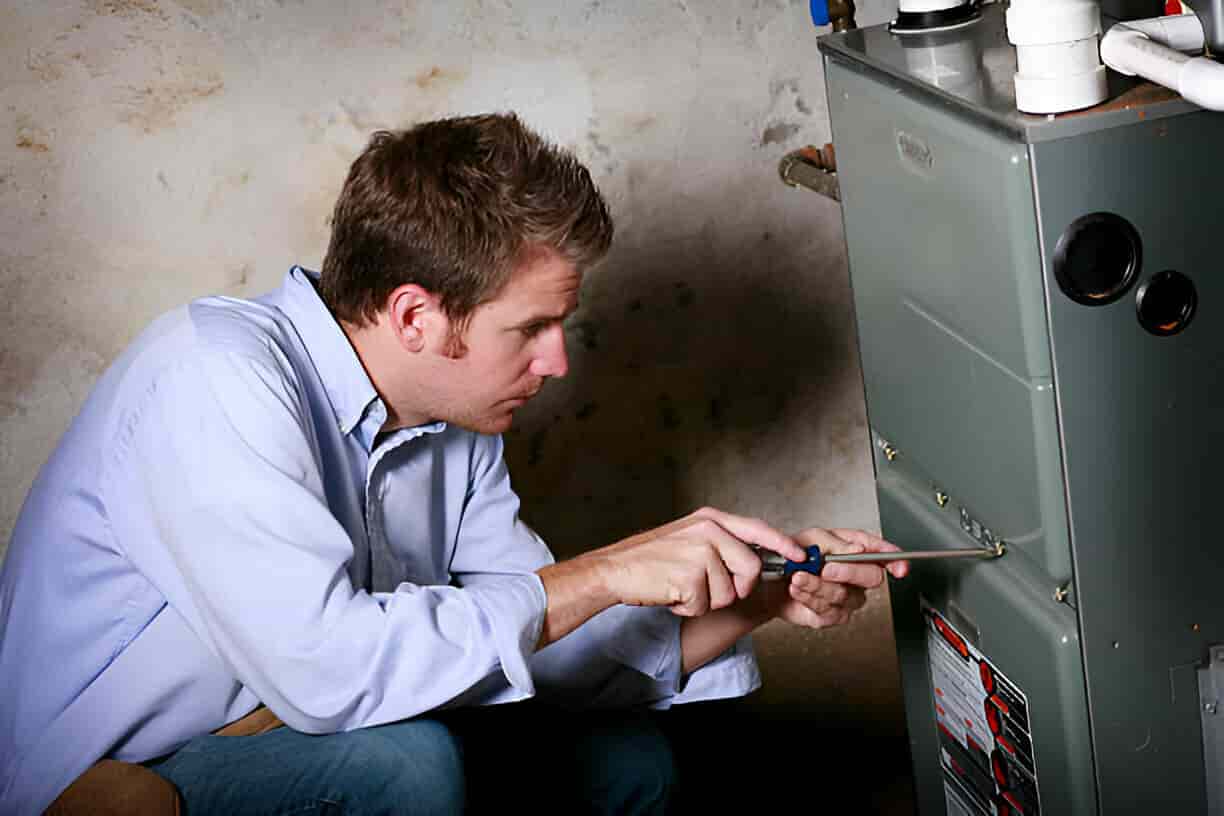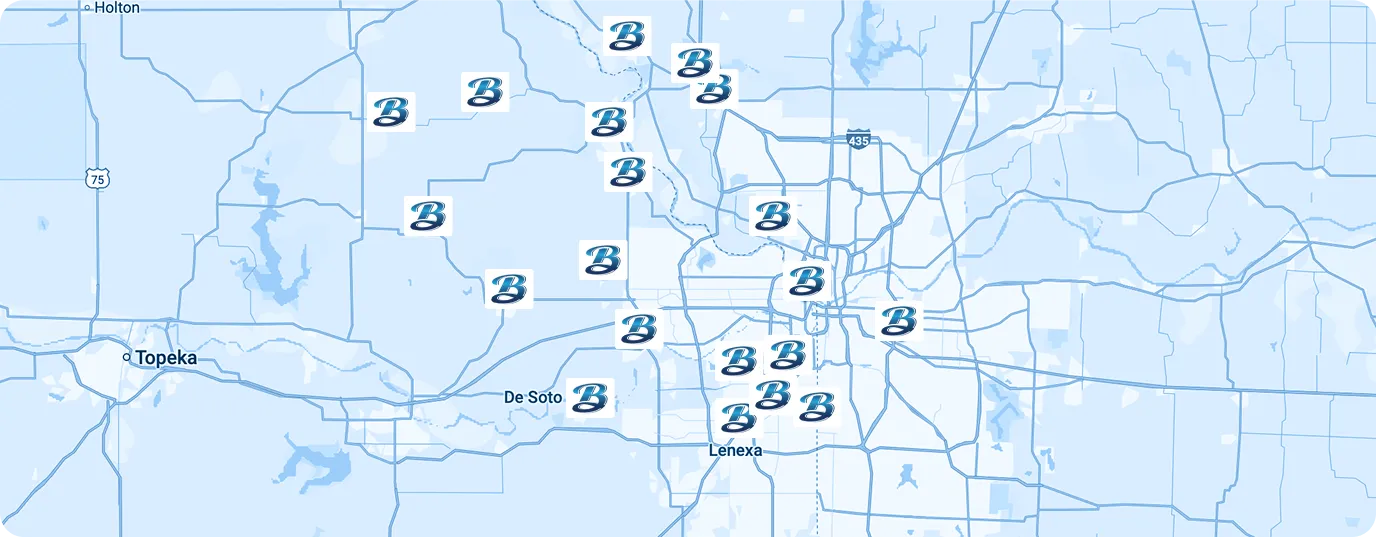Heating Tune-up in Basehor, KS
Heating Tune-Up in Basehor, KS provides a thorough overview of why seasonal maintenance matters, the common issues found, and the step-by-step inspection and testing process. The page details a diagnostic checklist, safety verifications, thermostat calibration, efficiency optimization, and final reports with repair recommendations. It explains long-term benefits such as improved reliability, lower energy use, extended equipment life, and maintained safety. The content emphasizes proactive scheduling before winter and highlights how professional tune-ups protect homes and warranties.
Heating Tune-up in Basehor, KS
A seasonal heating tune-up keeps your furnace or heat pump running reliably, safely, and efficiently through Basehor winters. With cold nights, occasional snow, and temperature swings in northeastern Kansas, a properly serviced heating system prevents mid-season failures, reduces energy waste, and lowers safety risks like carbon monoxide leaks. This page explains what a comprehensive Heating Tune-up in Basehor, KS includes, common issues we diagnose, the step-by-step inspection and testing process, an exact checklist of tasks performed, and the long-term benefits for your home.
Why a seasonal heating tune-up matters in Basehor, KS
Basehor homeowners face prolonged heating demand during winter and rapid seasonal transitions in spring and fall. Dust, pollen, and yard debris from windy periods can clog filters and affect airflow. Natural gas furnaces are common, but many homes also use heat pumps or electric systems. A pre-season tune-up:
- Restores efficient combustion and heat transfer
- Reduces the chance of emergency breakdowns during cold snaps
- Verifies safe operation to protect against carbon monoxide exposure
- Helps maintain manufacturer warranty requirements through documented maintenance
Common heating tune-up issues in Basehor, KS homes
Basehor heating systems typically show the same failure patterns that a tune-up identifies and fixes:
- Reduced airflow from dirty filters, blocked vents, or failing blower motors
- Yellow or unstable burner flames, indicating combustion or ventilation problems
- Pilot or ignition failures on older furnaces
- Inaccurate thermostats causing uneven comfort and short-cycling
- Rusted or cracked heat exchangers in older units, a safety concern
- Clogged condensate lines on high-efficiency furnaces leading to shutoffs
- Loose electrical connections or worn safety sensors causing intermittent operation
- Duct leakage or insulation gaps that lower delivered heat and raise energy use
What a Heating Tune-up covers (diagnostic and process)
A proper tune-up follows a consistent, safety-first process. Technicians start with a visual inspection and then move into targeted tests and adjustments:
Initial system inspection
- Visual check of the furnace, heat pump, air handler, ducts, vents, and thermostat
- Identify obvious wear, corrosion, leaks, or improperly installed components
Filter and airflow evaluation
- Inspect or replace filters if needed
- Measure airflow and check blower wheel, motor bearings, and belts
Combustion and safety testing (for gas and oil systems)
- Perform combustion analysis to measure carbon monoxide, oxygen, and efficiency
- Inspect burners, pilot/ignition systems, and gas pressure
- Check heat exchanger integrity visually and with appropriate tools
Venting and flue inspection
- Verify proper draft and clearances for flue and venting components
- Inspect for blockages, condensation, or animal nests
Electrical and control checks
- Tighten electrical connections, test limit and safety switches
- Inspect relays, capacitors, and control boards for signs of failure
- Thermostat calibration and system cycling
- Calibrate thermostat settings and confirm accurate temperature readings
- Run system through complete heat cycles to observe operation and startup behavior
Efficiency and optimization
- Adjust burner settings, ignition timing, and fan speeds where applicable
- Inspect seals at access panels and suggest duct or seal improvements if loss is detected
Final documentation and recommendations
- Provide a checklist of work completed and identify any parts or repairs needed to restore full reliability and safety
Detailed checklist of tasks performed
A comprehensive Heating Tune-up in Basehor, KS typically includes the following tasks:
- Inspect and replace or recommend replacement of air filter
- Clean and vacuum combustion chamber, burners, and accessible components
- Inspect and clean pilot assembly or electronic ignition components
- Perform combustion analysis for CO and efficiency on gas or oil appliances
- Inspect heat exchanger for visible cracks, corrosion, or damage
- Test flue draft and inspect venting for blockages or corrosion
- Check and tighten electrical connections and test safety switches
- Inspect and lubricate blower motor and fan bearings where applicable
- Measure blower motor performance and adjust fan speed if needed
- Check and clear condensate drain lines on high-efficiency systems
- Calibrate thermostat and test temperature differential and system cycling
- Inspect ductwork for disconnected or leaking seams and recommend remedies
- Verify proper gas valve operation and pressure where applicable
- Test limits, rollout switches, and other safety devices
- Provide a clear report of findings and prioritized repair recommendations
Repairs and solutions explained in plain terms
When a tune-up reveals issues, common solutions are straightforward and focused on restoring safe, efficient operation:
- Dirty filters or coils: Replacing filters and cleaning heat exchanger or coils improves airflow and heat transfer immediately.
- Ignition or pilot problems: Replacing a faulty igniter or cleaning the pilot assembly restores reliable starts and reduces wear from frequent cycling.
- Combustion imbalances: Adjusting burners or addressing venting issues reduces carbon monoxide risk and increases fuel efficiency.
- Blower issues: Cleaning or replacing the blower wheel and lubricating bearings restores proper airflow and even heating throughout the home.
- Safety concerns: A cracked heat exchanger or unstable combustion requires prompt repair or replacement to ensure safety; these issues are documented during the tune-up.
- Duct leakage: While full duct sealing may be a separate service, a tune-up identifies leaks and recommends targeted sealing or insulation to improve delivery of warm air.
Efficiency optimization and long-term advantages
A tune-up does more than fix immediate problems. In Basehor homes, regular seasonal maintenance:
- Lowers fuel bills by improving combustion efficiency and airflow
- Extends equipment life by reducing strain from poor airflow and repeated short-cycling
- Reduces the risk of mid-winter emergency repairs during cold spells
- Maintains safer indoor air by ensuring combustion byproducts are vented properly
- Helps preserve manufacturer warranty coverage through documented annual maintenance
Recommended frequency and seasonal timing
For dependable performance through Basehor winters, schedule a full heating tune-up annually before the heating season begins-late summer or early fall is ideal. For homes with heavy seasonal use or older equipment, consider adding a mid-winter inspection. High-efficiency systems benefit from more frequent filter checks during dusty or windy months.
A thorough Heating Tune-up in Basehor, KS combines safety testing, performance optimization, and preventative care. The result is a warmer, more reliable home with lower energy use and fewer unexpected repairs when you need heat the most.









